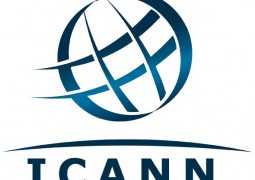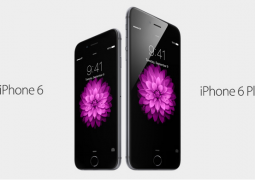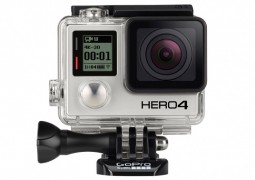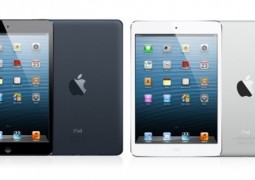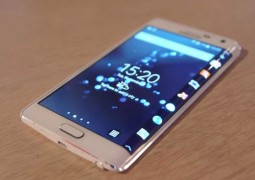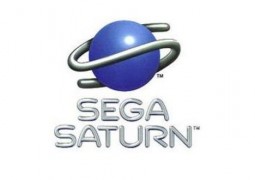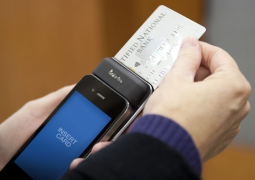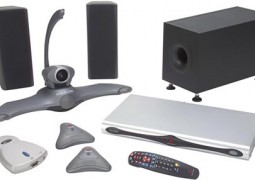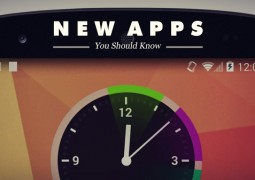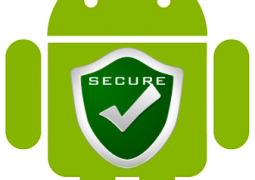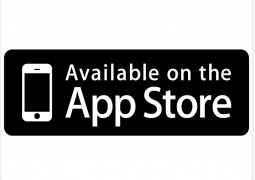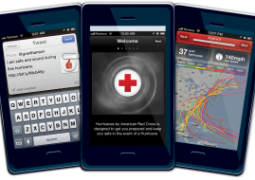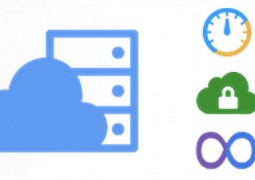Microsoft is Ready to Throw Some Punches With Windows Phone 8
by 22 June, 2012 4:50 pm3
Microsoft recently unveiled Surface, their new Windows 8 tablet line that looks exceptionally promising, to say the least. Apparently, they were not done surprising us because they also unveiled the next generation of the Windows Phone OS. It seems as if Microsoft will finally reach new heights again with Windows Phone 8. As our trusty ol’ pal Duke Nukem would say, “Microsoft is kickin’ ass and chewing bubble gum”.
Windows Phone 8 will share some serious integration with the Windows 8 operating system, which means that all Windows 8 devices will play nicely together. This feature may not seem like much, but when you consider the fact that Microsoft’s new operating system will run on a varying list of desktops, laptops and netbooks and a new line of mobile devices alongside a branded tablet line – yeah, crazy-awesomeness is bound to ensue.
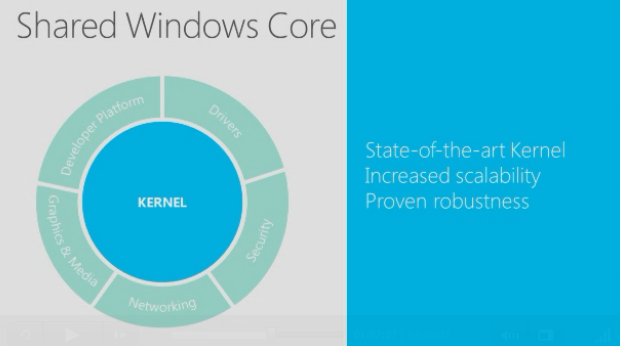 To tie everything together, Microsoft discussed their idea of a “shared core” between all Windows 8 devices which will allow app developers to blend the boundaries with cross-platform development. These days, everything is centric to portability, especially when you factor in how much a smartphone or tablet can do on-the-go. Imagine being able to start a project, application or game on a Windows 8 computer and then move to a Windows Phone 8 device or tablet when you have to move around. We know, we know, this hyped portability feature has been around for a while now, but what’s exciting is that since all Windows 8 platforms share a common focus, developers will be able to do a lot of cross-platform work.
To tie everything together, Microsoft discussed their idea of a “shared core” between all Windows 8 devices which will allow app developers to blend the boundaries with cross-platform development. These days, everything is centric to portability, especially when you factor in how much a smartphone or tablet can do on-the-go. Imagine being able to start a project, application or game on a Windows 8 computer and then move to a Windows Phone 8 device or tablet when you have to move around. We know, we know, this hyped portability feature has been around for a while now, but what’s exciting is that since all Windows 8 platforms share a common focus, developers will be able to do a lot of cross-platform work.
Of course, Microsoft also covered a long list of features and enhancements that we can expect to see in the latest version of Windows Phone 8.
New Features, Software Upgrades & Benefits of Windows Phone 8
New Hardware Support
Microsoft has integrated support for a bunch of new hardware upgrades with Windows Phone 8 to allow for modern smartphone functionality. Some of the newly supported hardware includes multicore chipsets, a powerful graphics processor, faster modem architecture, higher screen resolution support, removable storage options and of course Near Field Communication (NFC) technology.
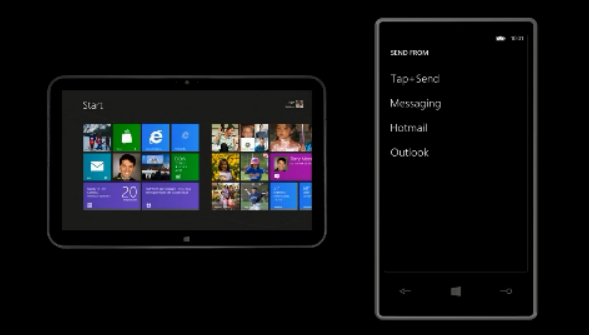
NFC technology is a relatively new mobile feature that allows devices to connect and interact without any added software tweaking. For instance, if you were to tap two NFC enabled devices like a Windows 8 phone, and a bluetooth headset, the two devices would connect automatically without requiring any additional passcodes or setup.
NFC will also allow for devices to transfer files and documents by simply tapping them together. Say you have a photo you want to share with your friend, you can simply tap your NFC enabled Windows Phone to their Windows Phone, tablet or computer and the file will magically travel over-the-air. Scary, right?
A Brand New Home Screen Experience
Windows Phone 8 will feature the infamous Live Tiles home screen of Windows Phone 7 devices albeit with a few extra tweaks and modifications. The new Windows Phone 8 home screen does away with the side menu to make more space for what truly matters, the Live Tiles. Users can also resize all tiles to match personal preference; for instance, if you like checking your email more than you like seeing social media updates you can resize the email tile to fit more of the screen. All Live Tiles can be interchanged between three different sizes; small, medium and large.
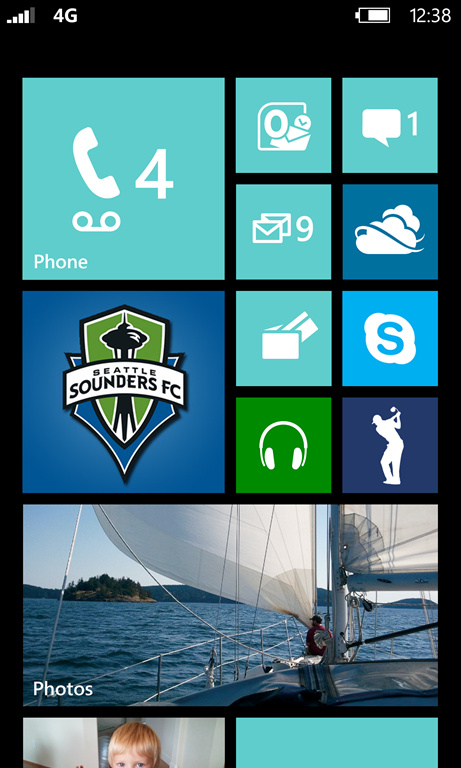 We’re going to go out on a limb here and say that if you didn’t see this feature coming you are probably not tech savvy. It’s a no-brainer that Microsoft would include their latest version of their web browser in Windows Phone 8, but we digress.
We’re going to go out on a limb here and say that if you didn’t see this feature coming you are probably not tech savvy. It’s a no-brainer that Microsoft would include their latest version of their web browser in Windows Phone 8, but we digress.
Windows Phone 8 will include Internet Explorer 10 as a default browser, and the new mobile browser experience includes Javascript and HTML5 support. Microsoft touts that IE10 will see four times faster performance gains in Javascript, and two times the HTML5 support as Windows Phone 7.
Internet Explorer 10 for Windows Phone will also include a SmartScreen antiphishing filter. The phishing filter will provide increased security for the mobile browser by blocking harmful websites from access.
More Enterprise Support
Windows Phone 8 will also include enterprise security support to allow IT admins to better monitor employee devices. Some of the relevant security options include secure boot support, bitlocker data encryption, business controlled app distribution and improved integration with software management solutions.
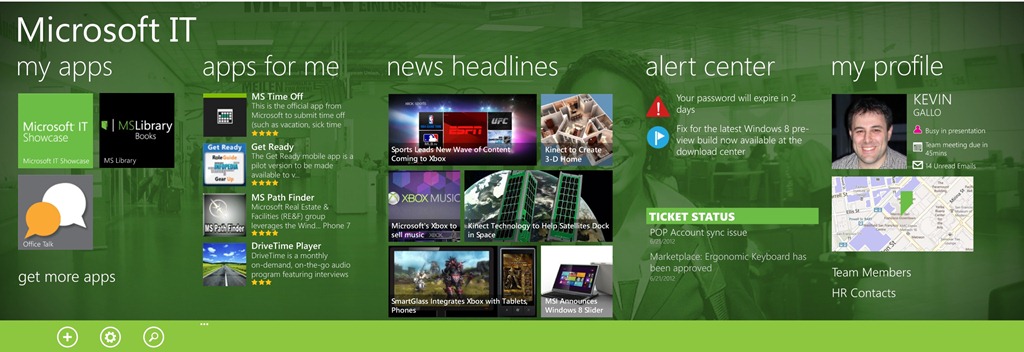
Improving even further on the enterprise support, Windows Phone 8 will also work with a new “Company Hub” feature. The Microsoft Company Hub will allow businesses to create and customize a network that can send alerts to employees, recommend mobile apps and display relevant news. Microsoft demoed their own Company Hub to show off how the service worked, and Microsoft employees were able to update a profile picture and access employee related documents like vacation requests and HR forms.
Updated Camera Support
RIM unveiled the new Blackberry 10 OS camera which rewinds the frame and allows users to capture the perfect moment even after taking a not-so-perfect picture. It looks like Microsoft has taken a hint and will include similar support for cameras in Windows Phone 8.
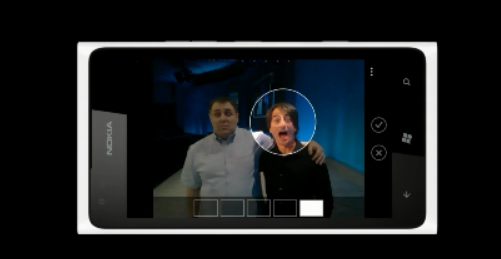 The Windows Phone 8 camera takes a “Smart Group Shot” which snaps a rapid burst of images at once and then uses a series of algorithms to combine all the shots in order to create the perfect picture. That means you no longer have to worry about your friend that never wants to smile at the right time. We all have a friend like that, and they can be aggravating.
The Windows Phone 8 camera takes a “Smart Group Shot” which snaps a rapid burst of images at once and then uses a series of algorithms to combine all the shots in order to create the perfect picture. That means you no longer have to worry about your friend that never wants to smile at the right time. We all have a friend like that, and they can be aggravating.
The Windows Phone 8 camera will also support panoramic shots, and a new self-timer setting that will allow you to take a picture of yourself without the need of a bathroom mirror. Say it with us, hooray for the end of MySpace mirror shots! Unfortunately, mirror shots will probably still play an integral role in the social scene [insert frown here].
Introducing the Microsoft Wallet Hub
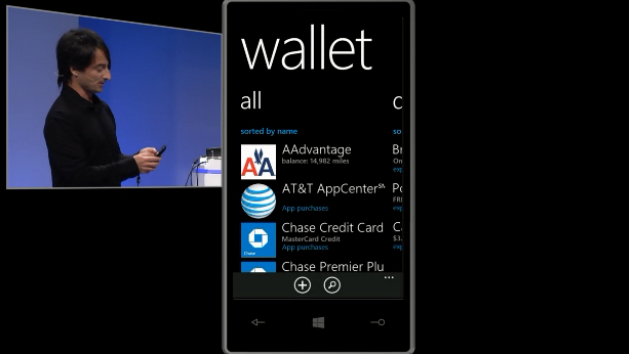 With the Wallet Hub, Microsoft is encouraging consumers to leave their wallets at home. Realistically we’re going to say that won’t happen but who knows, right?
With the Wallet Hub, Microsoft is encouraging consumers to leave their wallets at home. Realistically we’re going to say that won’t happen but who knows, right?
The Wallet Hub will work like Apple’s new Passbook feature in iOS 6 and will include support to transfer all essential paper documents to digital form. The Wallet Hub can hold all tickets, credit and debit cards, coupons, frequent flyer information and even customer loyalty cards from your favorite coffee shop.
The Microsoft Wallet will also be compatible with third party apps, meaning you can pay at participating retail stores with NFC support.
Windows Phone 8 Will Use Nokia Maps
Microsoft came to grips with the fact that their map service in Windows Phone 7 is lacking when compared to the other smartphone giants on the market. In Windows Phone 8, Microsoft has implemented native support for Nokia Maps, which will introduce, turn-by-turn navigation and offline map support to the platform.
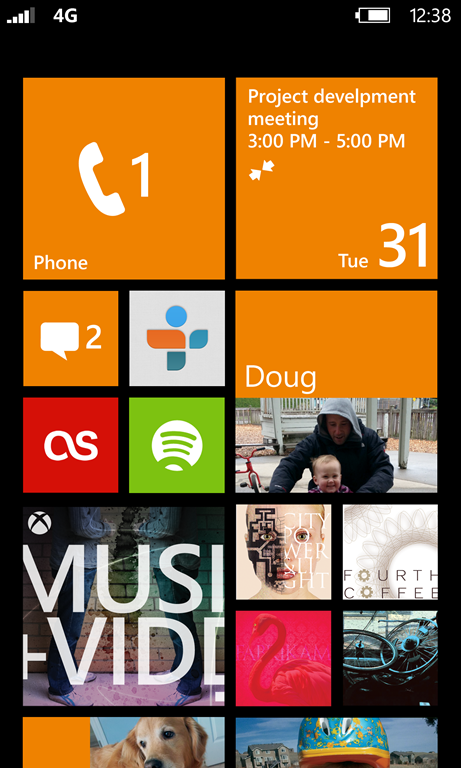 Windows Phone 8 app developers will also be able to take advantage of advanced Nokia Map APIs that allow third party use of the service, which means that we can all expect a new category of apps that utilize a combination of GPS and map support.
Windows Phone 8 app developers will also be able to take advantage of advanced Nokia Map APIs that allow third party use of the service, which means that we can all expect a new category of apps that utilize a combination of GPS and map support.
Advanced Mobile Gaming Support
Windows Phone 8 will support more powerful graphics processors, but it will also support Direct X, Microsoft’s multimedia and gaming API. Microsoft has partnered with AutoDesk and Havok, to ensure that more substantial game titles make it to the Windows Phone OS.
Cross-Platform Development Ease
If you’re not a developer or programmer this news won’t excite you much, but that’s okay, because it’s still beneficial to everyone. All Windows Phone 7 apps will be compatible with Windows Phone 8, and developers who create apps for the Windows 8 OS will also be able to port apps to the mobile platform with ease.
Windows Phone 7 Users Can Not Upgrade to Windows Phone 8
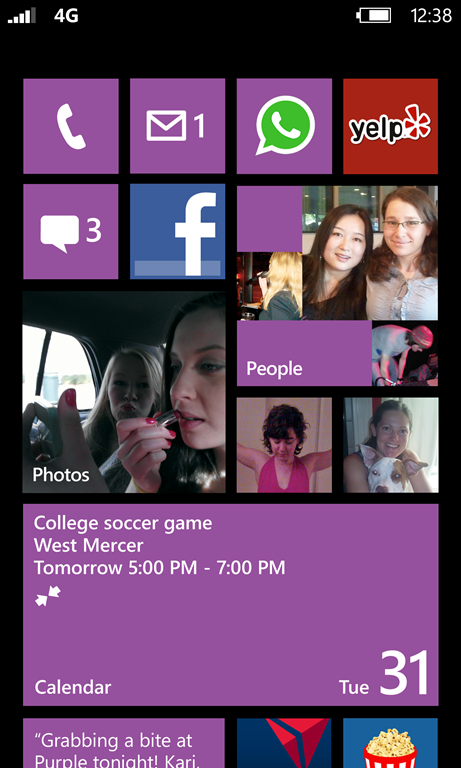 Because a lot of the new features and software implementations require modern hardware, current Windows Phone 7 owners will have to purchase a new device in order to experience the Windows Phone 8. Windows Phone 7 users will be able to take advantage of the improved home screen Live Tiles thanks to a future update that will introduce the feature (Windows Phone 7.8).
Because a lot of the new features and software implementations require modern hardware, current Windows Phone 7 owners will have to purchase a new device in order to experience the Windows Phone 8. Windows Phone 7 users will be able to take advantage of the improved home screen Live Tiles thanks to a future update that will introduce the feature (Windows Phone 7.8).
Unfortunately, if you want to taste some of that Windows 8 goodness, you will have to upgrade to a new device.
Windows Phone 8, Surface & Windows 8 Will All Release in Perfect Harmony
Microsoft has not revealed an official release date for any of its Windows 8 lineup yet, besides their mention of a vague “fall” period. There is one thing we can all be certain of though, all of the Windows 8 devices and software will roll out to the public at the same time. That means the Windows 8 OS, Windows 8 Surface tablets, and the Windows Phone 8 devices will hit the market at the same time.
Until then, you’ll just have to settle for reading and fantasizing about what is coming.
